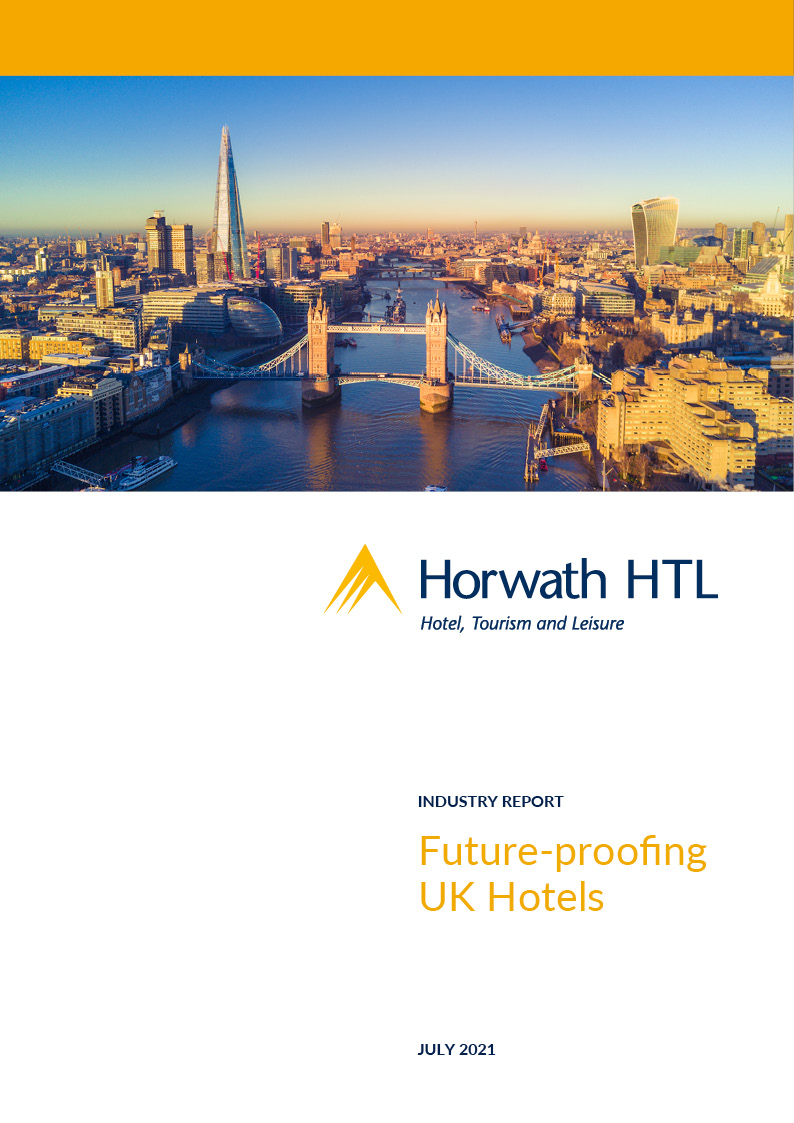
Report
Future-proofing UK Hotels
Chains Recovery and Performance:
As the UK navigates the post-COVID-19 era and the implications of Brexit, the hotel industry faces significant changes to maintain relevance and profitability.
This report delves into the strategies hotel owners and operators are adopting to future-proof their businesses.
Staffing Crisis and Labour Costs
The hospitality sector is experiencing a staffing crisis, exacerbated by Brexit and the pandemic. Many EU nationals have left the UK, resulting in significant staff shortages. To attract experienced personnel, employers are paying higher wages, further straining budgets. Hotels are forced to reassess the value, productivity, and flexibility of each role, often requiring employees to multitask and adapt to varying demands. New technologies are being implemented to streamline operations, but human interaction remains crucial in luxury properties.
Rising Operational Costs
In addition to increased labour costs, hotels must brace for higher operating and development costs due to the phasing out of COVID-19 support measures and Brexit-related tariffs. Key changes include:
- The end of the reduced 5% VAT rate, replaced with 12.5% until March 2022.
- The termination of furlough schemes by September 2021.
- The cessation of business rates exemption by June 2021, with a discount until March 2022.
Hotels must optimize costs, enhance worker efficiency, and integrate technology to mitigate these financial pressures.
Sustainability and Environmental Regulations
Governments worldwide are enforcing stricter carbon emission regulations. With many FTSE 100 companies committing to net zero emissions by 2050, hotels must adopt best environmental practices to secure business from these clients.
This includes:
- Prioritizing capital improvements that enhance efficiency and comply with regulations.
- Taking advantage of the “super deduction” capital allowances for qualifying new plant and machinery, offering significant tax benefits until March 2023.
- Focusing on the adaptation, conversion, and renovation of existing properties to maximize sustainability and economic sense.
Efficiency Lessons from Limited Service Operations
Limited service and budget accommodation properties have outperformed full-service hotels during the pandemic. These properties’ ability to operate with minimal costs and adjust quickly to demand changes offers valuable lessons. Full-service hotels can adopt structural efficiencies from limited service models, such as reducing the frequency of housekeeping and scrutinizing the viability of in-house F&B operations.
Blurring Lines Between Hotels and Alternative Accommodations
The hospitality industry is witnessing a convergence between traditional hotels and alternative accommodations. Major hotel groups are introducing hybrid models to offer more flexible and diverse options. For instance:
- Accor’s “Living” derivative for its brands includes studios and apartments with co-living elements.
- Oakwood has expanded its offerings from corporate housing to a range of hospitality management services, combining private residence comfort with hotel amenities.
Management and Franchise Agreements
The pandemic has prompted hotel operators to allow numerous concessions to preserve cash flow. Moving forward, management and franchise agreements are under scrutiny to align with new realities. Owners are negotiating terms to ensure agreements reflect the changes in product, services, and operational resources.
Despite the challenges of the past years, the hotel industry remains resilient and optimistic about the future. To thrive, hoteliers must:
- Build and operate more efficiently.
- Collaborate closely with stakeholders.
- Adapt to rising costs and environmental regulations.
- Embrace technological advancements.
Descarrega’t l’informe
For detailed charts, graphs, and further analysis, download the full report here

